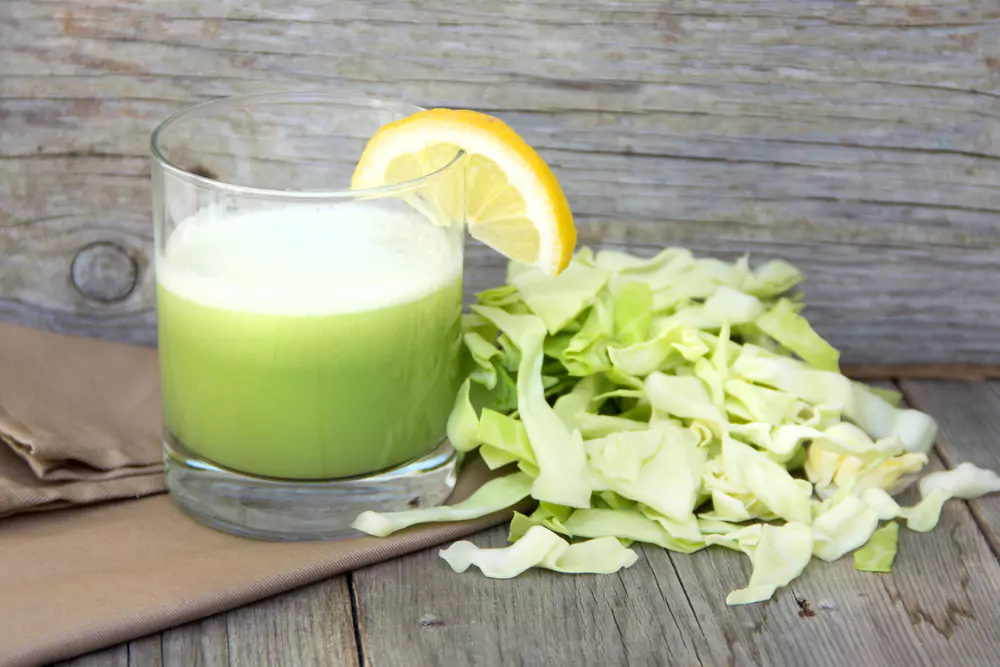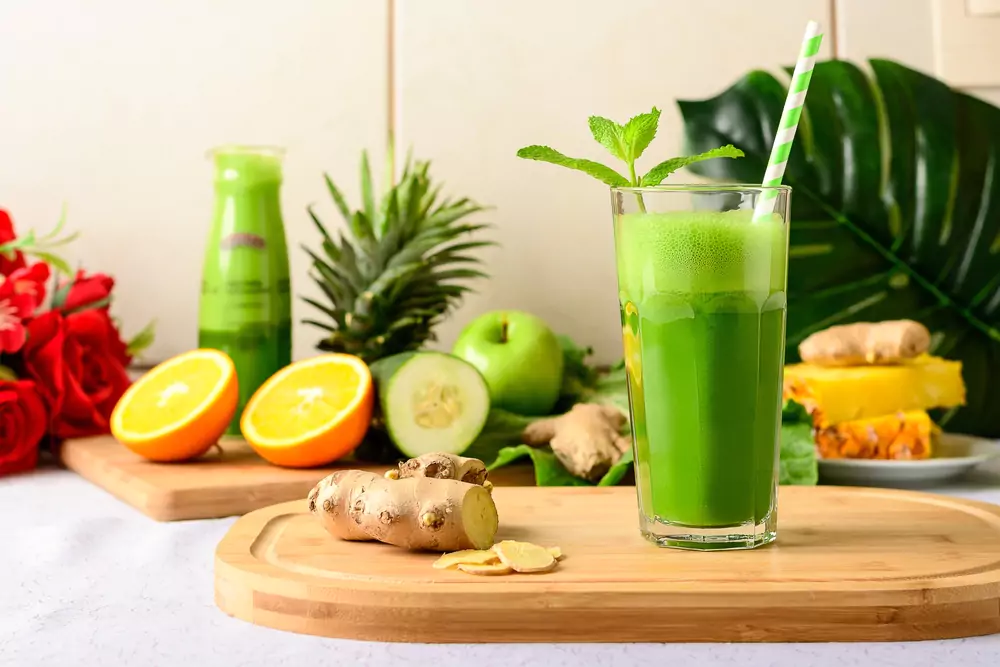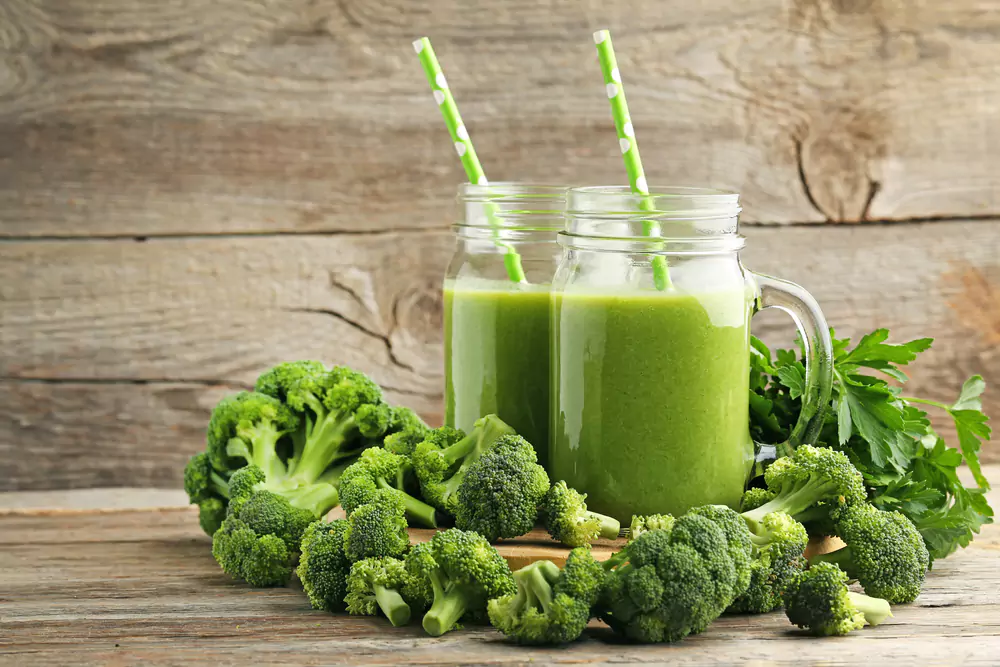Cabbage juice has gained popularity for its potential health benefits, including its ability to support digestion, promote weight loss, and provide a rich source of nutrients. However, before incorporating any new food or beverage into your routine, it’s important to consider ‘’Is it safe to drink cabbage juice daily?’’
In this comprehensive guide, I’ll explore the safety of drinking cabbage juice daily, examining its nutritional profile, potential health benefits, and any associated risks.
Nutritional Profile of Cabbage Juice
Cabbage is a cruciferous vegetable that is low in calories but high in nutrients. When juiced, cabbage retains many of these essential nutrients, including vitamin C, vitamin K, vitamin B6, folate, and fiber. Additionally, cabbage contains phytonutrients such as sulforaphane and indole-3-carbinol, which have been linked to various health benefits.
One cup of raw cabbage contains approximately 22 calories, 2 grams of fiber, and is a good source of vitamins K and C. When juiced, the nutritional content may vary slightly depending on the juicing process and any additional ingredients used. However, cabbage juice remains a nutrient-dense beverage that can contribute to overall health and well-being.
Potential Health Benefits of Cabbage Juice

Drinking cabbage juice daily may offer several potential health benefits due to its nutrient content and unique compounds. Some of the key benefits associated with cabbage juice consumption include:
Digestive Health
Cabbage juice is rich in fiber, which can support digestive regularity and overall gut health. The presence of lactic acid in cabbage juice may also promote the growth of beneficial gut bacteria.
Anti-Inflammatory Properties
The phytonutrients found in cabbage, such as sulforaphane and indole-3-carbinol, have been studied for their anti-inflammatory effects. These compounds may help reduce inflammation in the body and support overall wellness.
Weight Management
As a low-calorie beverage with a good amount of fiber, drinking cabbage juice may aid in weight management by promoting satiety and reducing overall calorie intake.
Nutrient Intake
Cabbage juice provides a concentrated source of essential vitamins and minerals, making it a convenient way to boost overall nutrient intake.
Safety Considerations
While cabbage juice offers numerous potential health benefits, it’s essential to consider its safety when consumed daily. Some individuals may experience digestive discomfort or gas due to the high fiber content of cabbage juice. Additionally, individuals with thyroid conditions should be cautious with excessive consumption of raw cabbage or cabbage juice as it contains compounds known as goitrogens that can interfere with thyroid function when consumed in large amounts.
Furthermore, some people may be allergic to certain compounds present in cabbage, leading to allergic reactions such as itching or swelling. It’s important for individuals with known food allergies to exercise caution when introducing new foods or beverages into their diet.
Moderation and Variety
As with any dietary choice, moderation and variety are key principles for maintaining a balanced and healthy diet. While drinking cabbage juice daily can offer certain benefits, it’s important to complement this with a diverse range of fruits, vegetables, whole grains, lean proteins, and healthy fats. This approach ensures that you receive a wide spectrum of nutrients while minimizing the risk of overconsumption of specific compounds found in individual foods.
Consultation with Healthcare Professionals
Individuals with existing medical conditions or those taking medications should consult their healthcare provider before incorporating large quantities of cabbage juice into their daily routine. Healthcare professionals can provide personalized guidance based on an individual’s unique health status and potential interactions with medications.
What Vegetables Should Not Be Juiced?

Now that you know Is it safe to drink cabbage juice daily, it’s important to consider which vegetables should not be juiced. While juicing can be a convenient way to consume a variety of nutrients, some vegetables are not well-suited for juicing due to their high oxalate content, potential for digestive issues, or other reasons.
Here are the veggies that you should avoid juicing:
Potatoes
Raw potatoes contain toxic compounds that can be harmful if consumed in large quantities. Juicing potatoes can concentrate these compounds, making it unsafe for consumption.
Eggplant
Eggplants contain solanine, a bitter-tasting and potentially toxic compound. Juicing eggplants can lead to the concentration of solanine, which may cause digestive discomfort.
Rhubarb
Rhubarb leaves contain oxalic acid, which can be toxic if ingested in large amounts. Juicing rhubarb leaves can lead to a high concentration of oxalic acid, posing health risks.
Tomato Leaves and Stems
While the tomato fruit is commonly juiced, the leaves and stems of the tomato plant contain toxic compounds. It’s important to avoid juicing these parts of the tomato plant.
Bell Peppers
Some individuals may experience digestive discomfort when consuming large amounts of bell pepper juice due to its high fiber content.
Cucumbers with Bitterness
Bitter cucumbers can contain cucurbitacins, which are toxic compounds. It’s essential to avoid juicing bitter cucumbers to prevent potential health risks.
Onions and Garlic
Juicing large quantities of onions or garlic can lead to strong flavors and potential digestive discomfort for some individuals.
Conclusion
In conclusion, drinking cabbage juice daily can be safe for many individuals and may offer various health benefits due to its rich nutrient content. However, it’s crucial to be mindful of potential side effects such as digestive discomfort or allergic reactions. Moderation and variety remain essential principles for a balanced diet, and consulting healthcare professionals is advisable for those with specific health concerns or medical conditions.
By considering these factors and making informed choices about dietary habits, individuals can harness the potential benefits of cabbage juice while prioritizing their overall well-being. For more details, head tojuicer hunter.
FAQs
How Often Should You Drink Cabbage Juice?
Drinking cabbage juice 2-3 times a week is recommended for most people, providing a balance between health benefits and potential side effects.
How Much Cabbage A Day Is Safe?
While moderate cabbage consumption is generally safe, exceeding 2 cups a day may lead to digestive discomfort for some individuals.
Is Drinking Boiled Cabbage Water Good For You?
Boiled cabbage water can be nutritious, but it’s advisable to consume it in moderation as part of a balanced diet.
Can I Drink Cabbage Juice On An Empty Stomach?
Drinking cabbage juice on an empty stomach is acceptable, and some people find it beneficial for digestive health.
Who Should Not Drink Cabbage Juice?
Individuals with thyroid issues or those prone to gas and bloating may want to avoid excessive cabbage juice consumption.
How Fast Does Cabbage Juice Work?
Cabbage juice may show health benefits within a few weeks, but individual responses vary, and it’s essential to monitor your body’s reactions.

Tasha Harshman: As a talented blogger and writer, she weaves words into magic, leaving readers spellbound. With every article, Tasha’s storytelling prowess and unique perspective ignite imagination and spark curiosity. Prepare to be transported to extraordinary worlds.
